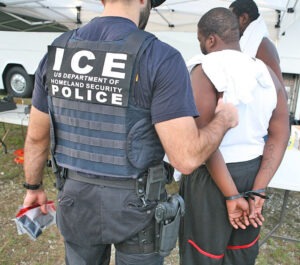When life throws us a curveball — and right now, our planet is one big curveball — we need to make adjustments. We’ve all heightened our concerns about our health, our livelihood, our Keys way of life — even the ways we interact with each other both now and in the future.
In unprecedented times such as these, with so many “adult” concerns, kids can seemingly get caught in the middle. We want to keep children safe, healthy, disciplined, learning and thriving — a tall order when you might have to do it within a 1,000-square-foot space. On top of it all, no matter how vulnerable we’re feeling, we want our kids to feel safe. But how?
To answer that question, we need to look at what has seemed to help during other stressful events. Although no one has lived through anything like COVID-19, we’ve all had various other stressors — from the loss of a family member to hurricane damage. And even if we’re not affected directly, a major event — the Sept. 11 attacks, for example — gives us some practice in getting kids through hard times.
Here, then, are some things that kid health experts recommend during events like these (with thanks to the American Academy of Pediatrics for gathering a lot of this information):
• First and foremost, take care of yourselves. While that’s easier said than done, there are things you can do to keep you on the path to sanity: Exercise. Eat well. Skype your best friend to vent. Our usual outlets are limited, but there is always something.
• Stick to family routines as much as possible, but consider establishing new ones. You’re all home, so eat as a family. And remember how you said you would start reading to your preschooler at bedtime? Is it a little easier now to do that?
• We all know misinformation travels faster in the Keys than any virus ever could. Remember that kids, young ones especially, don’t have the same capacity to take anything they hear with a grain of salt. Stick to a few sources you trust (personally, I like CDC, WHO, and Monroe County/Florida DOH). Don’t stay glued to the news, and certainly don’t subject your children to a constant barrage of it. Can you record a news program and preview it before your kids watch it? And do we even need to have the discussion regarding filtering the Internet?
• If you truly have physical and/or financial concerns, work out how and when you’ll talk to your children. Talk with your significant other, friends or co-workers first.
Your kids will have questions, and unexplained behavior changes are to be expected. Encourage kids to voice their understanding of the situation and their concerns.
Reassure them that you will be there for them, and use the discussion as a teachable moment to reduce the risks of getting sick. A lot of the behaviors we’re trying to do more of, such as handwashing, were always good ideas.
Above all, focus on the positives here. This crisis has brought home the phrase “One Human Family” like nothing ever has. Over and over again, I’ve seen great examples of how we’ve been sticking together as a species. And if that’s not a teachable moment, I don’t know what is.




















